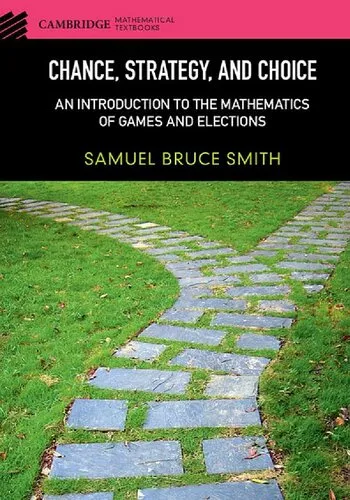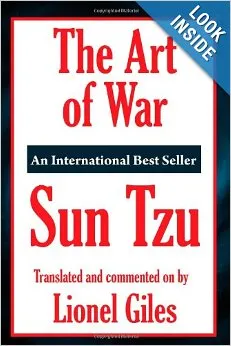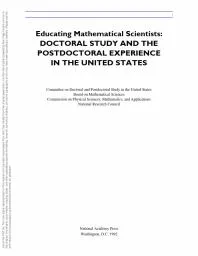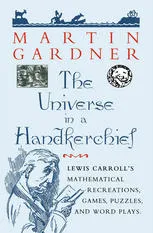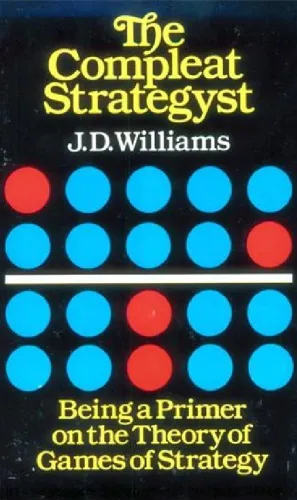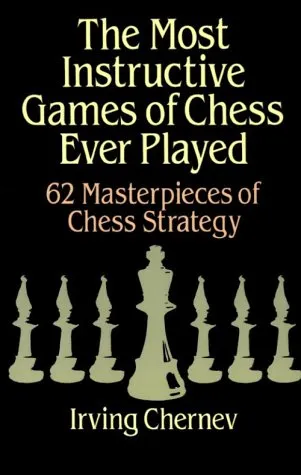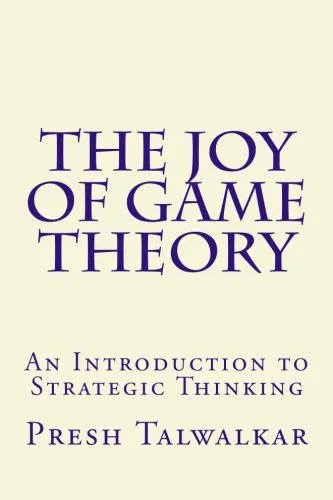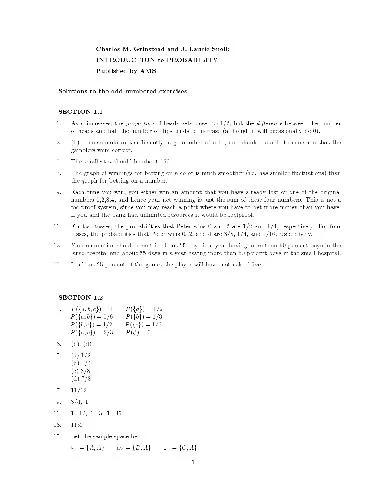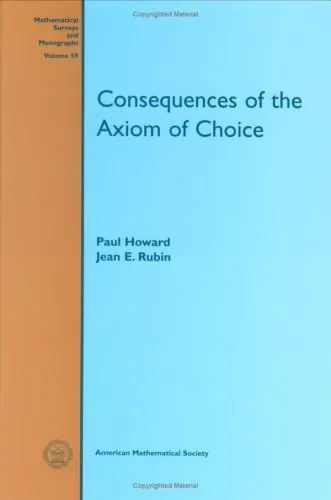Chance, Strategy, and Choice: An Introduction to the Mathematics of Games and Elections (Cambridge Mathematical Textbooks)
4.4
بر اساس نظر کاربران

شما میتونید سوالاتتون در باره کتاب رو از هوش مصنوعیش بعد از ورود بپرسید
هر دانلود یا پرسش از هوش مصنوعی 2 امتیاز لازم دارد، برای بدست آوردن امتیاز رایگان، به صفحه ی راهنمای امتیازات سر بزنید و یک سری کار ارزشمند انجام بدینکتاب های مرتبط:
معرفی جامع کتاب "Chance, Strategy, and Choice"
کتاب Chance, Strategy, and Choice: An Introduction to the Mathematics of Games and Elections یکی از برجستهترین آثار در حوزه ریاضیات کاربردی است که با تمرکز بر نظریه بازیها (Game Theory) و ریاضیات رایگیری (Election Mathematics)، خوانندگان را با مفاهیمی شگفتانگیز و عملی آشنا میکند. این اثر با تکیه بر ترکیبی از شور علمی و جذابیتهای ریاضی، به درک عمیقتری از تصمیمگیری استراتژیک و عدم قطعیت در تعاملات انسانی میپردازد.
نویسنده، ساموئل بروس اسمیت، با توضیحهای شفاف، مثالهای عملی، و رویکردی سیستماتیک، خوانندگان را از مفاهیمی ساده به موضوعات پیچیدهتر هدایت میکند و به آنها ابزارهایی میدهد که در تحلیل مسائل روزمره نیز به کار رود.
خلاصه جامع کتاب
این کتاب به دو بخش اصلی تقسیم میشود: نظریه بازیها و ریاضیات انتخابات. در قسمت اول، تمرکز اصلی بر روی موقعیتهای استراتژیکی است که در آنها طرفین باید تصمیمهایی بگیرند که نتیجه آن وابسته به تصمیمات دیگران است. در این بخش، بازیهایی همچون Prisoner's Dilemma، Chicken، و Zero-Sum Games مورد بحث قرار میگیرند. نویسنده با بهرهگیری از مدلهای ریاضی، ایدهٔ تعادل نش (Nash Equilibrium)، بهینهسازی استراتژیک، و مفهوم Utility را تشریح میکند.
در قسمت دوم که به ریاضیات انتخابات میپردازد، ساموئل بروس اسمیت به بررسی روشهای مختلف رایگیری مانند plurality voting، ranked-choice voting، و Borda count میپردازد. این بخش همچنین قدرت و پیچیدگی سیستمهای انتخابات را آشکار کرده و مسائل مربوط به تضادهای اجتماعی و پارادوکسهایی نظیر Arrow's Impossibility Theorem را بررسی میکند.
این اثر با پیوند زدن این دو حوزه به هم، نشان میدهد که چگونه تصمیمگیریهای روزمره ما میتواند تحت تأثیر بازیها و یا سیستمهای رایگیری قرار گیرد و چطور این ابزارها میتوانند برای تحلیل، طراحی، و پیشبینی نتایج به کار روند.
نکات کلیدی
- آشنایی با اصول نظریه بازیها و کاربردهای آن در جهان واقعی
- فهم عمیق از سیستمهای مختلف رایگیری و چگونگی تحت تأثیر قرار دادن نتایج
- بررسی ریاضیاتی تصمیمگیری در حضور عدم قطعیت و نتایج تصادفی
- درک تضادها و پارادوکسهای موجود در سیستمهای انتخابات
- آموزش تحلیل استراتژیک در شرایط مختلف اقتصادی، سیاسی و اجتماعی
جملات معروف از کتاب
"Understanding the mathematics behind games and elections sheds light on the intricacies of human decision-making, enabling us to better navigate the complexities of our social world."
"Game Theory is not just about competition; it's about exploring the delicate balance of cooperation and strategy in a world full of uncertainty."
"In any voting system, there is no perfect choice; there are only trade-offs that highlight the complexities of collective decision-making."
چرا این کتاب مهم است؟
کتاب Chance, Strategy, and Choice به دلیل برخورد علمی و جامع به یکی از جذابترین موضوعات حوزه ریاضیات و علوم اجتماعی، از اهمیت بالایی برخوردار است. نویسنده نه تنها مطالب پیچیده را به زبانی ساده و قابلفهم ارائه میدهد، بلکه با مثالهای واقعی و کاربرد عملی این تئوریها، نشان میدهد که چگونه ریاضیات میتواند به حل چالشهای جهانی کمک کند.
این کتاب ابزاری ارزشمند برای دانشجویان، محققین، و افرادی است که به دنبال توسعه تواناییهای خود در تحلیل و تصمیمگیری استراتژیک هستند. با بهرهگیری از این مفاهیم، میتوان در زمینههای مختلفی همچون اقتصاد، سیاست، و مدیریت، عملکرد بهتری داشت. همچنین، در جهانی که تصمیمگیریهای ما اغلب تحت تاثیر عوامل پیچیده و متغیر است، این کتاب به ما کمک میکند تا انتخابهای هوشمندانهتری داشته باشیم.
Introduction to 'Chance, Strategy, and Choice: An Introduction to the Mathematics of Games and Elections'
Welcome to the world of mathematics, where decision-making, probability, and strategic interaction intertwine to shape key aspects of human behavior and institutions. 'Chance, Strategy, and Choice: An Introduction to the Mathematics of Games and Elections' invites readers to explore the mathematical theories and principles behind competitive games, strategic decision-making, elections, and voting systems. Blending accessible mathematical techniques with compelling real-world applications, this book is an excellent starting point for readers looking to understand the intricate problems that govern fairness, choice, and rationality in both cooperative and competitive settings.
Written with clarity and purpose, the book is aimed at undergraduate students studying mathematics, economics, political science, or anyone intrigued by the fascinating intersection of mathematics and decision-making. With rich examples from disciplines ranging from political science to economics, probability theory, and game theory, this book demonstrates the surprising power and elegance of mathematics in tackling real-world issues.
Detailed Summary of the Book
The book opens with foundational topics in mathematics, providing the necessary tools for understanding game theory and social choice theory. Later chapters delve deeply into the analysis of games—structured interactions where the outcome depends on the "strategy" of each participant. Here, you'll discover the classic distinctions between zero-sum games, non-zero-sum games, and cooperative games. Concepts like Nash equilibrium and mixed-strategy equilibria are clearly explained with accessible examples that demonstrate their application.
Another significant portion of the book is dedicated to voting theory and the mathematics of elections. How do voting systems reflect the preferences of a group? Are there situations where outcomes from a democratic election contradict fairness? Through examining concepts like Arrow’s Impossibility Theorem and the Condorcet paradox, the book highlights the philosophical and logical challenges inherent in creating ideal voting systems. Additionally, it bridges theoretical issues with practical implications in political decision-making.
From there, the book transitions smoothly into probability, exploring how chance influences games, elections, and decision-making. Through topics like expected value, variance, and risk assessment, readers learn to quantify uncertainty and manage risks effectively. The final chapters synthesize these concepts by showcasing applications in real-world settings, from auction theory to strategic resource allocation and voting systems that strive for equity.
With ample examples, exercises, and a conversational writing style, the text emphasizes understanding over formality. By the end of the book, readers will not only appreciate the elegance of mathematical reasoning but also possess the analytical framework to tackle complex decision-making problems.
Key Takeaways
- Understand the fundamentals of game theory, strategy, and rational decision-making.
- Gain insights into the mathematics of voting systems and social choice theory.
- Learn how probability theory influences games and decision-making through uncertainty and risk analysis.
- Discover real-world applications of mathematical principles across disciplines like economics, political science, and behavioral science.
- Develop an appreciation for the philosophical and mathematical challenges of fairness and rationality in human systems.
Famous Quotes from the Book
"Mathematics is not just a tool to calculate numbers; it is a lens through which we understand the fundamental intricacies of human decision-making."
"In a democracy, elections are the cornerstone of fairness. But paradoxically, perfect fairness is a concept that eludes even the sharpest mathematical minds."
"Games and elections may appear to sit at the opposite ends of human activity, but they share one vital truth: strategy trumps chance only when carefully designed systems allow it."
Why This Book Matters
Modern life is full of decisions, from choosing your next move in a board game to electing world leaders. At the heart of these choices lies mathematics, a discipline not only of precision but also of insight and fairness. 'Chance, Strategy, and Choice' matters because it empowers readers to analyze and solve problems rooted in competition, cooperation, and chance. By demystifying abstract concepts like Nash equilibrium or Arrow’s Impossibility Theorem, the book makes them accessible to students, professionals, and enthusiasts alike.
Furthermore, the book goes far beyond theory. It calls into question the structures we take for granted—electoral systems, economic mechanisms, and social norms—and provides a toolkit for redesigning them to serve fairness and rationality. In a world increasingly driven by data and analytics, this understanding is more crucial than ever.
Ultimately, this book is not just an academic text; it is a guide to critical thinking and informed participation in the systems that govern our lives, blending enjoyment with intellectual rigor. It is for anyone who wants to know why games matter, how fairness can elude us, and why mathematics is a key to making sense of it all.
دانلود رایگان مستقیم
شما میتونید سوالاتتون در باره کتاب رو از هوش مصنوعیش بعد از ورود بپرسید
دسترسی به کتابها از طریق پلتفرمهای قانونی و کتابخانههای عمومی نه تنها از حقوق نویسندگان و ناشران حمایت میکند، بلکه به پایداری فرهنگ کتابخوانی نیز کمک میرساند. پیش از دانلود، لحظهای به بررسی این گزینهها فکر کنید.
این کتاب رو در پلتفرم های دیگه ببینید
WorldCat به شما کمک میکنه تا کتاب ها رو در کتابخانه های سراسر دنیا پیدا کنید
امتیازها، نظرات تخصصی و صحبت ها درباره کتاب را در Goodreads ببینید
کتابهای کمیاب یا دست دوم را در AbeBooks پیدا کنید و بخرید
1271
بازدید4.4
امتیاز0
نظر98%
رضایتنظرات:
4.4
بر اساس 0 نظر کاربران
Questions & Answers
Ask questions about this book or help others by answering
No questions yet. Be the first to ask!
